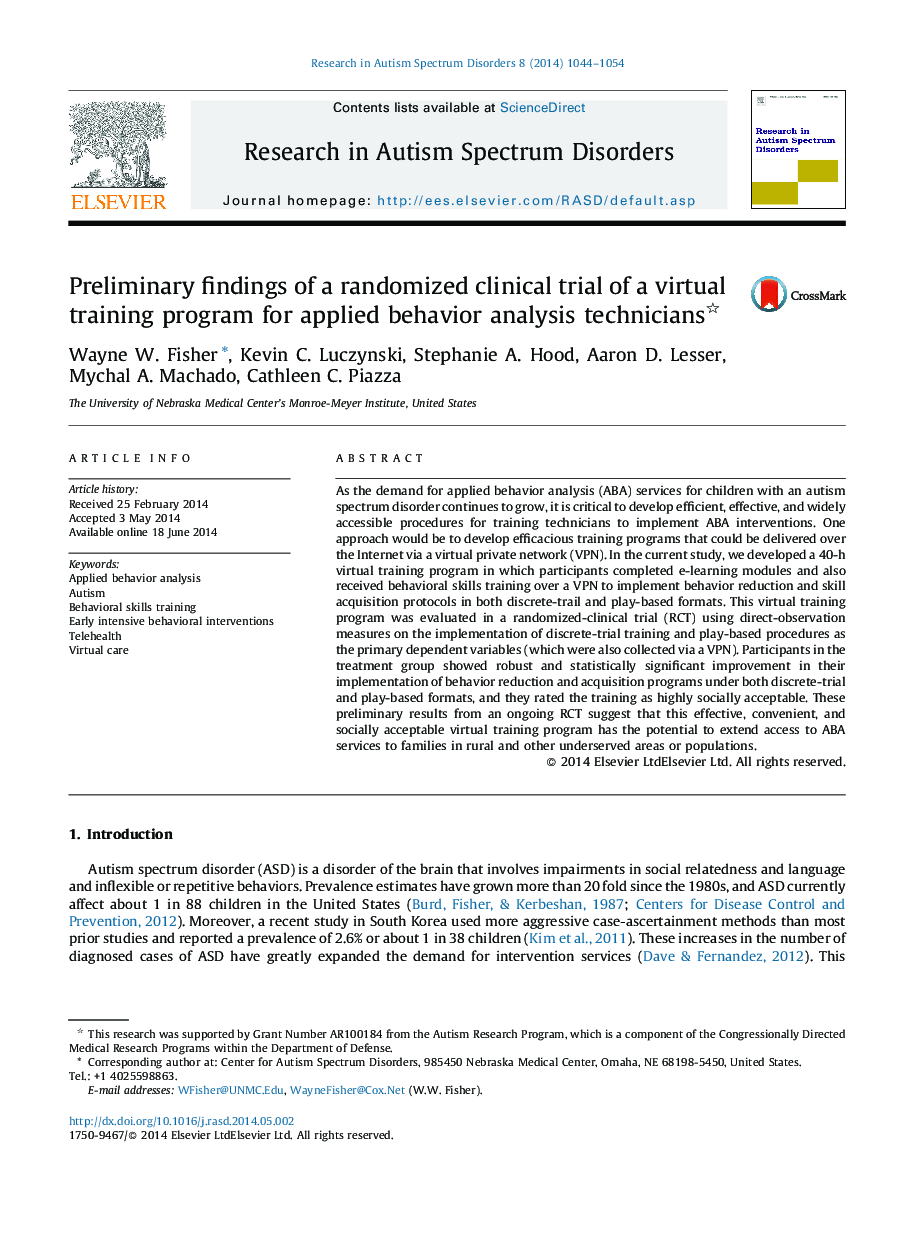| Article ID | Journal | Published Year | Pages | File Type |
|---|---|---|---|---|
| 370095 | Research in Autism Spectrum Disorders | 2014 | 11 Pages |
•Effective and widely accessible procedures for training technicians in applied behavior analysis are in demand.•We used a randomized clinical trial to evaluate a 40-h, virtual training program in applied-behavior-analysis procedures.•Robust improvements in accurate skill implementation were obtained, and the training model was rated as highly acceptable.•Our virtual training program could be used to train technicians anywhere in the world as there is sufficient Internet access.•Our current virtual training program was considerably more comprehensive than most of the programs evaluated to date.
As the demand for applied behavior analysis (ABA) services for children with an autism spectrum disorder continues to grow, it is critical to develop efficient, effective, and widely accessible procedures for training technicians to implement ABA interventions. One approach would be to develop efficacious training programs that could be delivered over the Internet via a virtual private network (VPN). In the current study, we developed a 40-h virtual training program in which participants completed e-learning modules and also received behavioral skills training over a VPN to implement behavior reduction and skill acquisition protocols in both discrete-trail and play-based formats. This virtual training program was evaluated in a randomized-clinical trial (RCT) using direct-observation measures on the implementation of discrete-trial training and play-based procedures as the primary dependent variables (which were also collected via a VPN). Participants in the treatment group showed robust and statistically significant improvement in their implementation of behavior reduction and acquisition programs under both discrete-trial and play-based formats, and they rated the training as highly socially acceptable. These preliminary results from an ongoing RCT suggest that this effective, convenient, and socially acceptable virtual training program has the potential to extend access to ABA services to families in rural and other underserved areas or populations.
